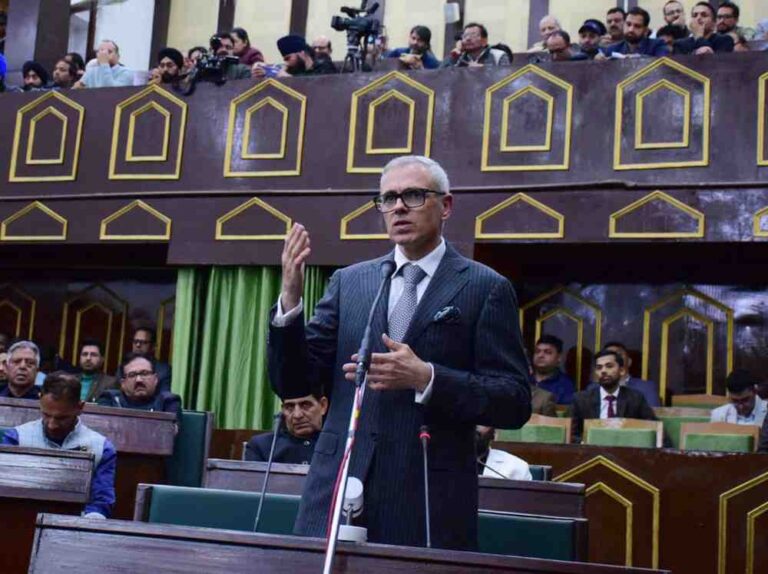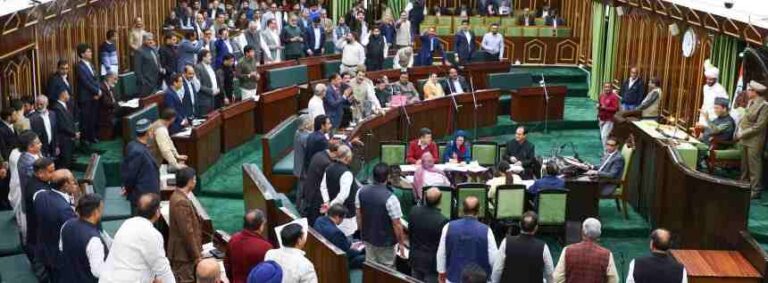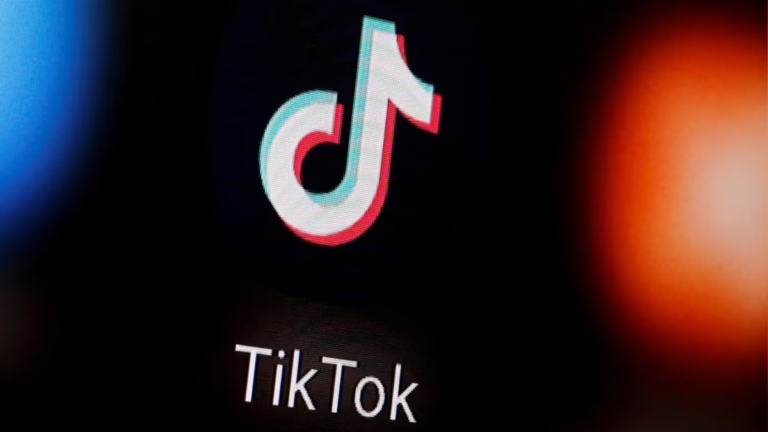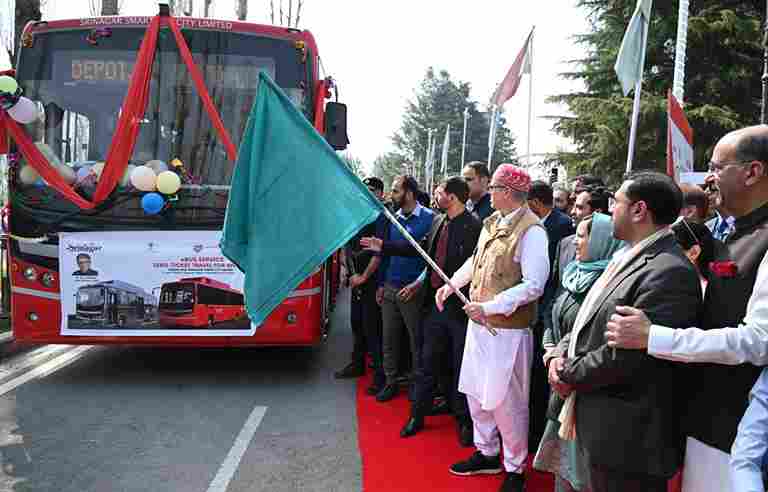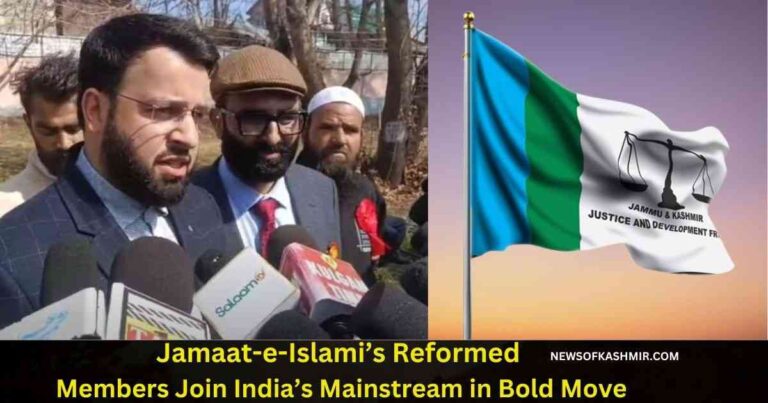Political Earthquake: Ex-RAW Chief Claims Farooq Abdullah Privately Backed Abrogation of Article 370
In a revelation that has sent shockwaves through Jammu and Kashmir’s political landscape, former Research and Analysis Wing (RAW) chief A.S. Dulat has claimed in his latest book, published by Juggernaut, that National Conference (NC) leader Farooq Abdullah privately supported the Indian government’s decision to abrogate Article 370 in August 2019. This claim, despite Abdullah and his party’s public condemnation of the move as a “betrayal,” has ignited fierce debate and drawn sharp reactions from regional political figures, raising questions about the NC’s stance and the behind-the-scenes dynamics of one of India’s most contentious policy decisions.
The Revelation: Dulat’s Account
Dulat, a seasoned intelligence officer with deep ties to Kashmir’s political elite, writes that Farooq Abdullah expressed private willingness to support the abrogation of Article 370, which granted special autonomous status to Jammu and Kashmir. According to Dulat, Abdullah lamented the lack of consultation, asking, “We would have helped (pass the proposal). Why were we not taken into confidence?” This suggests that the NC patriarch was open to cooperating with the central government’s move, despite the party’s vocal opposition.
Further fueling speculation, Dulat notes a secretive meeting between Farooq Abdullah, his son Omar Abdullah, and Prime Minister Narendra Modi in New Delhi just days before the abrogation on August 5, 2019. “What transpired…nobody will ever know,” Dulat writes, as quoted by Hindustan Times. The opacity of this meeting has added intrigue, with critics suggesting it may have been a pivotal moment in shaping Abdullah’s stance.
Following the abrogation, which revoked Article 370 and bifurcated Jammu and Kashmir into two Union Territories, Farooq Abdullah was detained for seven months under the Public Safety Act. During this period, Dulat claims, Delhi discreetly probed Abdullah’s position, seeking to ensure he would “accept the new reality.” This raises questions about whether Abdullah’s detention was partly a means to align him with the central government’s agenda.
Political Reactions: A Firestorm of Accusations
The claims have elicited sharp responses from rival political leaders in Jammu and Kashmir, who have seized the opportunity to challenge the NC’s credibility and question its public narrative.
Sajad Lone: “No Surprise”
Sajad Lone, the Peoples Conference Chief and MLA from Handwara, described Dulat’s revelation as “very credible,” citing Dulat’s close relationship with Farooq Abdullah. In a series of posts on X, Lone portrayed Dulat as Abdullah’s “closest ally” and “alter ego,” lending weight to the claims. Lone suggested that the NC’s public opposition to the abrogation was a facade, accusing the party of “perfecting playing the victim card.”
Lone pointed to the 2019 meeting with Modi as evidence of Abdullah’s complicity, sarcastically imagining Abdullah saying, “Humey roney deejiye—Aap apna kaam karein—hum aap kay saath hain” (Let us cry, you do your work, we are with you). He further speculated that the NC’s strong performance in the 2024 Jammu and Kashmir Assembly elections was a “prize” for services rendered in 2019, framing it as a calculated move in the “national interest.” Lone also mocked the NC’s likely response, predicting they would dismiss the claims as a conspiracy and lean on their allies in Delhi to silence critics.
Iltija Mufti: A Betrayal Normalized
Iltija Mufti, a leader of the Peoples Democratic Party (PDP), echoed Lone’s skepticism, accusing Farooq Abdullah of complicity in the abrogation. In a post on X, Mufti, daughter of PDP chief Mehbooba Mufti, described Dulat as an “ardent Abdullah supporter” and argued that the claims clarified long-standing doubts about the NC’s role. She alleged that Farooq Abdullah deliberately chose to stay in Kashmir instead of attending Parliament during the abrogation, thereby helping to “normalize gutting of J&K’s constitution & subsequent betrayal.”
Mufti’s remarks reflect the PDP’s ongoing rivalry with the NC, with both parties vying for influence in Kashmir’s fractured political landscape. Her accusations amplify the narrative that the NC’s public stance was a performance, masking a more pragmatic alignment with Delhi.
The Context: Article 370 and Its Aftermath
The abrogation of Article 370 was a landmark decision by the Bharatiya Janata Party (BJP)-led central government, fulfilling a long-standing ideological goal. The move stripped Jammu and Kashmir of its special status, repealed Article 35A (which granted special rights to permanent residents), and reorganized the state into two Union Territories—Jammu and Kashmir, and Ladakh—under direct central control. The decision was accompanied by a massive security lockdown, internet shutdowns, and the detention of prominent political leaders, including Farooq Abdullah, Omar Abdullah, and Mehbooba Mufti.
The NC, under Farooq and Omar Abdullah, has consistently opposed the abrogation publicly, framing it as an assault on Kashmir’s identity and autonomy. The party’s 2019 election manifesto promised to restore Article 370, and its leaders have repeatedly criticized the move in speeches and media appearances. However, Dulat’s claims suggest a disconnect between the NC’s public rhetoric and private negotiations, potentially undermining its credibility among its voter base.
The NC’s Silence and the Road Ahead
As of now, the National Conference has not issued an official response to Dulat’s claims or the accusations from Lone and Mufti. The party’s silence may reflect a strategic choice to avoid engaging with a narrative that could alienate its supporters, particularly in the Kashmir Valley, where resentment over the abrogation remains strong. Alternatively, it may signal internal deliberations on how to address the allegations without fueling further controversy.
The timing of the revelations is significant. The NC’s strong performance in the 2024 Jammu and Kashmir Assembly elections, where it emerged as the single-largest party and formed a government with Omar Abdullah as Chief Minister, has bolstered its regional influence. However, Dulat’s claims risk casting a shadow over this victory, providing ammunition to rivals like the Peoples Conference and PDP, who are eager to portray the NC as duplicitous.
Broader Implications
Dulat’s account underscores the complex interplay of public posturing and private pragmatism in Jammu and Kashmir’s politics. The region’s leaders have long navigated a delicate balance between local sentiments and Delhi’s authority, often engaging in backchannel dialogues that remain hidden from public view. If true, Abdullah’s private support for the abrogation could reflect a pragmatic recognition of the central government’s resolve, even as he maintained a public stance aligned with his electorate’s aspirations.The controversy also highlights the enduring sensitivity of Article 370’s abrogation.More than five years later, the issue remains a flashpoint, with regional parties leveraging it to rally support and settle scores. For the central government, Dulat

